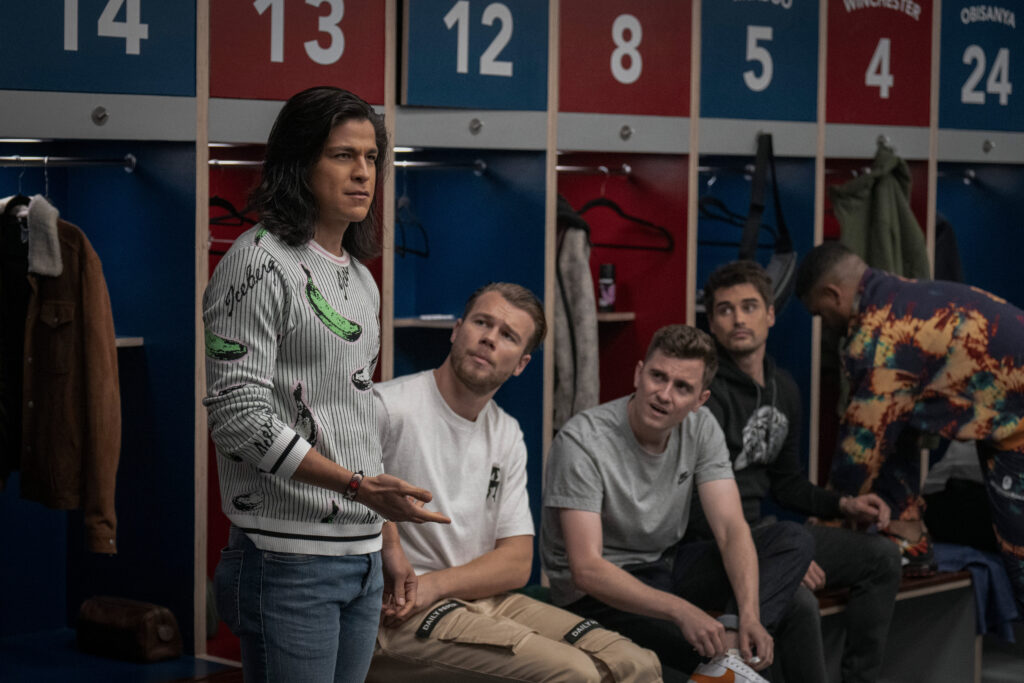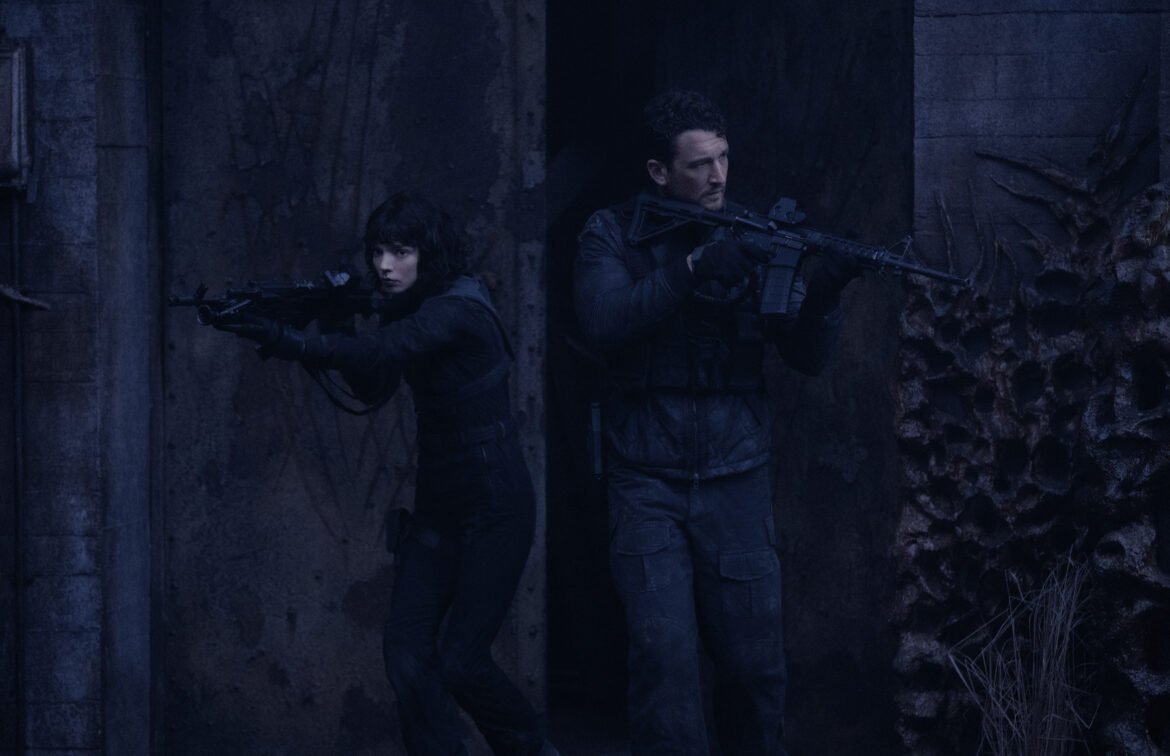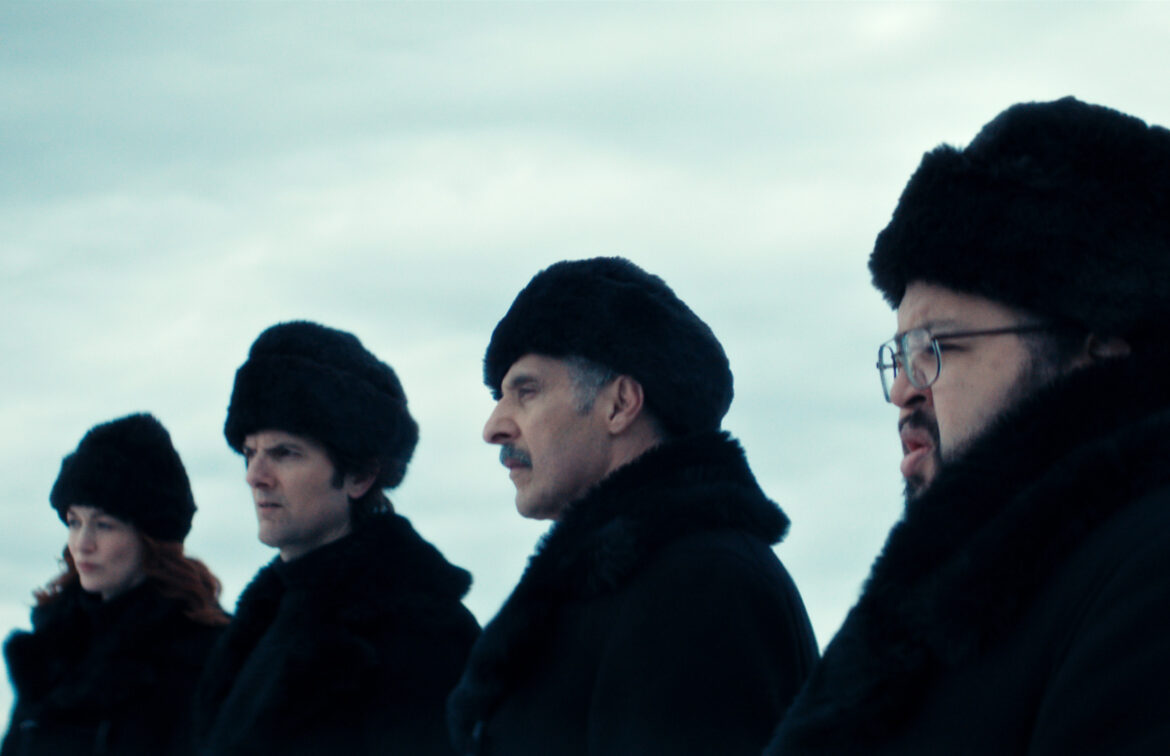(Article includes spoilers from episode Ted Lasson: Season 3, Episode 8: “We’ll Never Have Paris”)
Partial Recap: Season 3, Episode 8: “We’ll Never Have Paris
In the latest episode of ‘Ted Lasso’, written by Keeley Hazell and Dylan Marron, Ted has to contend with his wife and her boyfriend (and their former couples therapist) coming to England, along with their son, while Keeley’s shocked by the hack and release of a private video she filmed that’s now been leaked and shared across the internet. In any other show prior to now, and too often in real life, this particular story with Keeley would unfortunately lead to victim blaming, morality judges rising up everywhere, and an impact on her career. While Ted Lasso nods to this in internet comments Keeley reads, and indeed the show has Keeley’s girlfriend George lend voice to these all too real reactions faced by real-life celebrities and non-celebrities alike when their private life is shared without their permission or knowledge, the AFC Richmond players, all men, are actually shown to be discussing, and ultimately landing, on the right path. While Roy himself fumbles his reaction, Jaimie stops by Keeley’s house to offer apologies, as it’s revealed he was the recipient of the video as well and that it was most likely his account that was hacked.
Is This The Real Life?
One reason why so many viewers, including myself, love Ted Lasso is that it contends with issues like mental health, celebrity leaks, characters contending with whether to come out, and so many other topical, tough stories in a way that few shows would even now. So often where a previous show would zig, Ted Lasso zags, and for the better as it’s both a more delightful show and a more hopeful show.
What I was considering though after watching this last episode in particular though is how Aaron Sorkin’s West Wing often gave me similar vibes, as it painted an often rosy version of the White House, even for the early 2000s, where politicians could have disagreements and work it out through debate, shame had meaning especially with scandals, and government largely functioned.
Though I think many still love and respect The West Wing, and perhaps it’s just Aaron Sorkin’s own writing including subsequent projects that haven’t aged well, more and more I can see (or hear) the inevitable rolling of the eyes when The West Wing is brought up as it’s too picture perfect and creates a halcyon time that never existed.
I wondered then if Ted Lasso, itself again a show that so often at least presently comes out on the right side of an issue, might be deemed too preachy or too unrealistic in years to come?
Prescriptive vs Possible

Cristo Fernández, David Elsendoorn, Billy Harris and Stephen Manas in “Ted Lasso,” now streaming on Apple TV+.
Though it’s far too early to truly know how Ted Lasso will be embraced (or not) in the years to follow, especially as we haven’t even watched all of Season 3, I feel Ted Lasso stands apart as a show that is not so much telling us what life should be, as many a Sorkin monologue is wont to do, but showing us a more hopeful world full of better possibilities.
Sorkin’s so often had a “if you just talk it out, it’ll all work out” attitude, which may have seemed somewhat possible in the early 2000s; however, in an era of Trump politics, where politicians like George Santos can exist, this simply is not the case, and again perhaps it never could be.
Ted Lasso though doesn’t suggest it has all the answers, even if you can perhaps tell what the writer’s hope for in the future. In episode 7, when Colin Hughes (Billy Harris) is confronted by Trent Crimm, former reporter and now aspiring biographer for the team, Crimm reveals he himself is gay. When watching this episode with a friend they predicted early on this would be the case, because again Ted Lasso doesn’t go where other shows would, which is to create conflict out of this reveal. Likewise unlike Sorkin, who would likely have Crimm’s character unveil some wisdom of life on the young Hughes, Crimm instead admires Hughes and asks how he does it? We do not have an answer of “how to be an LGBTQ player” in the form of a monologue, but we have a nice discussion showcasing the struggles of being a closeted professional player.
What’s the Future Hold?
The West Wing began in 1999 about a year before the contentious and divisive 2000 election of George Bush vs Gore, which alongside 9/11 following and its impact on all facets of American life, lent even more weight to this show about how maybe The White House and politics in general could do good even if it’s complex, that rational people could debate issues, and ultimately that in time progress would be achieved. We needed that in those times.
Today’s hardly different, and we may live in perhaps scarier times, so our attachment to Ted Lasso is perhaps not surprising. Ted Lasso afterall began during the peak of the pandemic which undoubtedly is one of many reasons why its thrived. Ted Lasso the show, and the character, provide plenty of comforting takes on real life issues, folksy pop-cultural references with a healthy side of Coach Bear, and together there’s an importance, and importantly healthy, emphasis on mental health in America.
No doubt as the show’s continued many have already questioned its saccharine nature, and perhaps the sugar is too sweet for some when delivering the medicine. However I imagine that whereas The West Wing lives on in our minds and nostalgia perhaps better than for some in reality, that Ted Lasso will perhaps linger in our heart for longer as a model of a hopeful world and not an step-by-step antidote. to a broken one.











